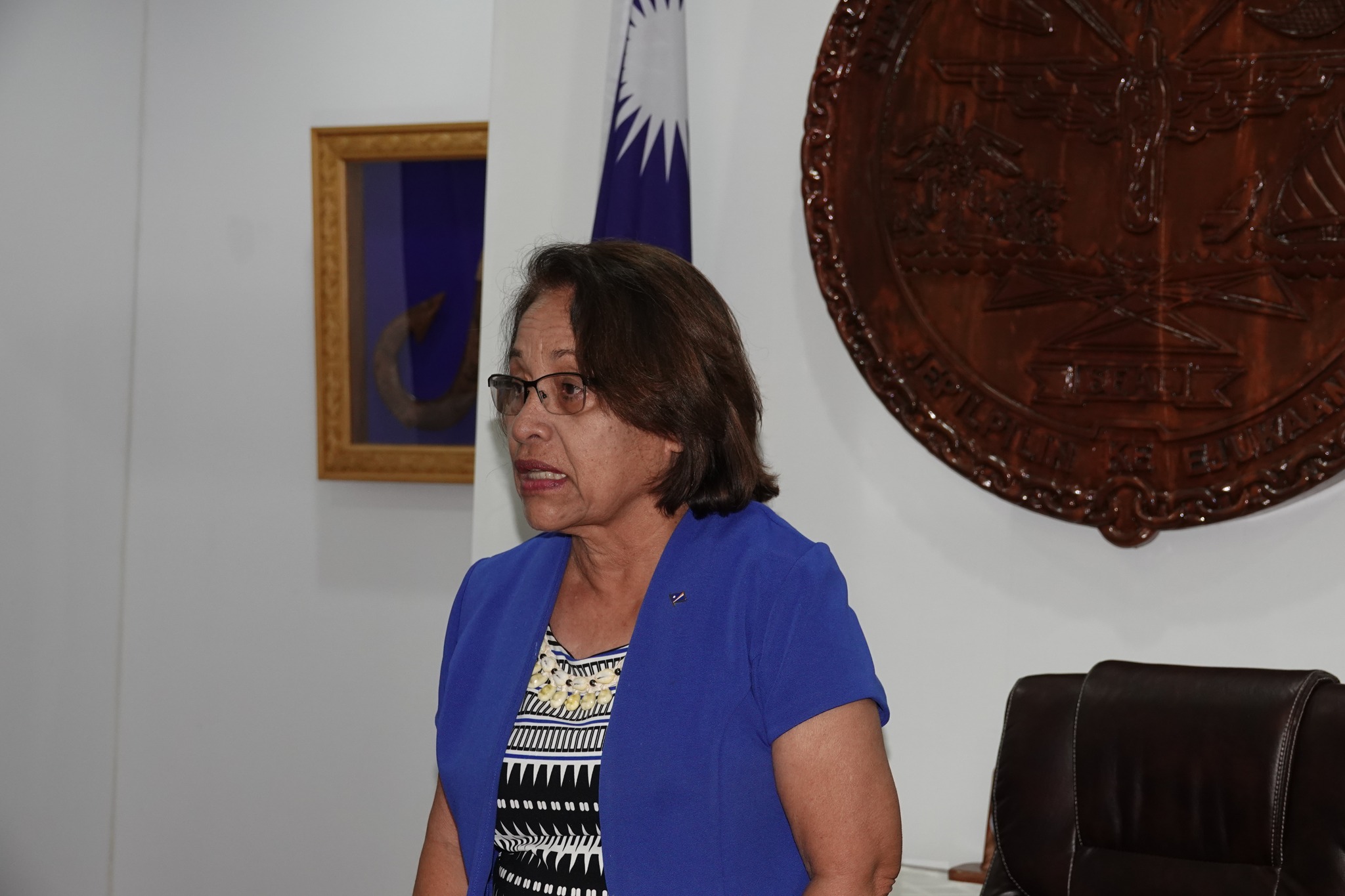The Pacific nation of the Marshall Islands may formally seek an amendment of a U.N treaty banning nuclear weapons, before it considers acceding to it, its leader said Wednesday.
President Hilda Heine told Kyodo News in an interview that if certain provisions in the Treaty on the
Prohibition of Nuclear Weapons are not changed, “cannot ratify the treaty.”
Her remarks came ahead of the 70th anniversary Friday of the most powerful U.S nuclear bomb test in the Marshall Islands.
The provisions she referred to say that nuclear-affected countries are responsible for victim assistance and environmental remediation.
“Obviously, the treaty did not take our issues into consideration because…the language is such that we have to clean our own mess. And in fact, we shouldn’t be. We didn’t cause the mess,” Heine said, citing the continuing impact of the 67 U.S nuclear tests that were conducted from 1946 to 1958.
The largest-ever test took place on 01 March 1954 at Bikini Atoll, exposing islanders and 23 crew members on the Japanese tuna fishing boat Fukuryu Maru No. 5 to radioactive fallout.
A formal petition to revise Article 6 of the treaty, which came into force in January 2021, could be “the next step we need to make”, Heine said, asking her country’s diplomats in New York dealing with the United Nations to “take a look at what’s needed there.”
“We supported the treaty…because we don’t want nuclear to be developed and used around the world. We don’t want what we experienced to happen to other people,” she said.
Heine also underscored the importance of the participation of the United States and other nuclear-armed states in the pact. “As long as they are out of the treaty, then they are able to do this (nuclear development). It doesn’t make sense,” she added.
The Marshallese leader, who took the helm in January for a second term, created a new position called Presidential Envoy for Nuclear Justice and Human Rights. During her first term in 2016 until 2020, the country’s National Nuclear Commission was also established.
“I’ve always felt that we need to do more,” Heine said.
With an amended agreement with the United States signed last October to address the lingering effects of the nuclear tests, Heine said her administration will work out a formula for the allocation of the increased assistance to 13 nuclear-affected atolls, up from the previous four — Bikini, Rongelap, Enewetak and Utrok.
Under the 2023 Amended Compact, the United States will provide US$1.6 billion to the Marshall Islands over 20 years in grant assistance and US$700 million in new Compact Trust Fund contributions.
Heine lamented the continued displacement of many Marshallese due to the nuclear tests.
“As long as people are not back on their home islands, the (nuclear) legacy continues because land is so important to people,” she said.
Ahead of a memorial ceremony set for Friday to remember the nuclear victims in the country, a number of activities raising awareness about the issue have begun in the capital Majuro this week, including the sharing of stories between Marshallese and Japanese college students.














